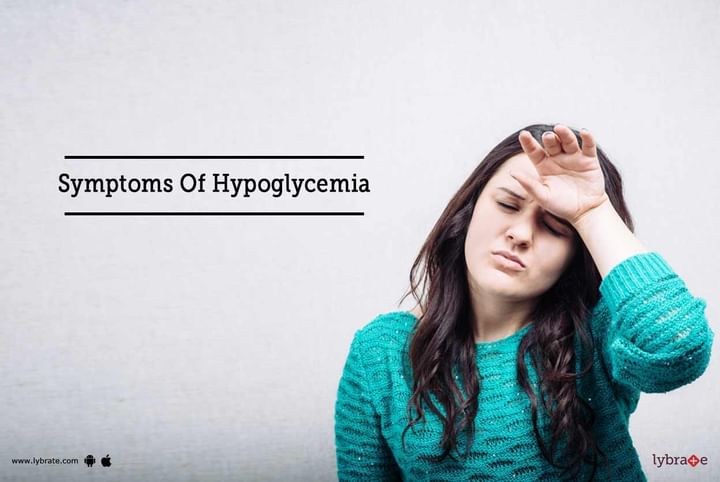Symptoms Of Hypoglycemia
Last Updated: Mar 17, 2023
As hypoglycemia is a condition where blood sugar level gets decreased, glucose supplied to the brain also reduced. A person may experience headache, blurry or impaired vision like symptoms due to low sugar levels. Both eyes will take two pictures and convert it into one image in a normal process of vision, but under such condition, the brain loses its ability to coordinate the vision. The pupils of eyes are also enlarged and patient cannot able to find the correct line if he is reading.
Poor coordination
Without adequate glucose, the brain is unable to absorb new information and have difficulty in communication. This condition range from not being able to remember a word, to speak in a monotone, to only respond in simple words like yes or no, can be observed in hypoglycemic patient. Such patient describes the feeling of daydreaming where they realize missed communication or unable to catch some words that are used for communication.
Dizziness or feeling lightheaded
Some times after being a hypoglycemic, person may experience dizziness like condition where he faces trouble walking a straight line or changing body positions. This condition is many times misinterpreted with drunkenness. Under such conditions, if a person is sidetracked by police or any stranger during walking, medical identification in the form of a bracelet, wallet etc. can save him from misunderstanding and can get him to hospital for further treatment.
Difficulty concentrating
Concentration is an activity completely related to the brain and in blood brain barrier, from where required nutrients are entering in the brain for its proper functioning, is affected by decreased blood sugar or glucose level and inhibits the functions of the brain. Certain type of hormones like epinephrine and norepinephrine are released in the body when a person is being hypoglycemic because the brain relies on these hormones for raising blood sugar levels. Such hormones are causing symptoms like difficulty in concentration, headaches, etc.
Feeling anxious or irritable
The abnormal condition of low level of blood sugar is a hypoglycemia where the less supply of sufficient glucose to the brain interferes with the functioning of it. A patient who is taking medication for diabetes is at higher risk for occurrence of hypoglycemic conditions. Insufficient level of energy supplement may cause symptoms of anxiety and a person comes into agitated stage where he will not recognize his family members or friends and he may argue, cry, yell or fight with them.
Hunger or nausea
Hunger is a condition that fulfills the need of glucose or energy required to the body and if the person is hypoglycemic, it is a common symptom leading a person to eat and raise blood glucose level. Many people follow a habit of ignoring the initial symptoms of hunger due to meetings, studying, or attending lecture but it can be more dangerous situation. The low levels of blood sugar can interfere with the body’s metabolism and causes mixed feeling of nausea.
Erratic changes in behavior
Erratic or unusual changes like anxious, giddy, confused and irritable may be experienced in person’s behavior. If a hypoglycemic person experiencing such behavior and ignored for longer period of time, than it will be difficult to help such person. The person who is trying to help such severe hypoglycemic patient, should first calm down a patient and then only try to feed him something with carbohydrates. The close monitoring of blood glucose level for such patient is highly advised and he should be not left alone until it reaches to safe range.
Conclusion
A medical condition known as hypoglycemia occurs when the blood sugar level falls below the usual range. The causes can be diabetes, use of certain medications and poor nutrition. Some common symptoms of hypoglycemia are dizziness, difficulty in concentrating, fatigue, anxiety, numbness, shakiness, nausea, sweating and poor coordination.
Frequently Asked Questions (FAQs)
What are the early warning signs of hypoglycemia?
What triggers hypoglycemia?
What are the 4 common causes of hyperglycemia?
What is the best medicine for hypoglycemia?
How long does hypoglycemia last?
Who is most affected by hyperglycemia?
Is hyperglycemia stress or diabetes?
References
- Cryer PE. Symptoms of hypoglycemia, thresholds for their occurrence, and hypoglycemia unawareness. Endocrinology and metabolism clinics of North America. 1999 Sep 1;28(3):495-500. [Cited 06 April 2020]. Available from:
- McCrimmon RJ, Gold AE, Deary IJ, Kelnar CJ, Frier BM. Symptoms of hypoglycemia in children with IDDM. Diabetes care. 1995 Jun 1;18(6):858-61. [Cited 06 April 2020]. Available from:
- Tomky D. Detection, prevention, and treatment of hypoglycemia in the hospital. Diabetes Spectrum. 2005 Jan 1;18(1):39-44. [Cited 06 April 2020]. Available from:
Table of content
Ask a free question
Get FREE multiple opinions from Doctors



